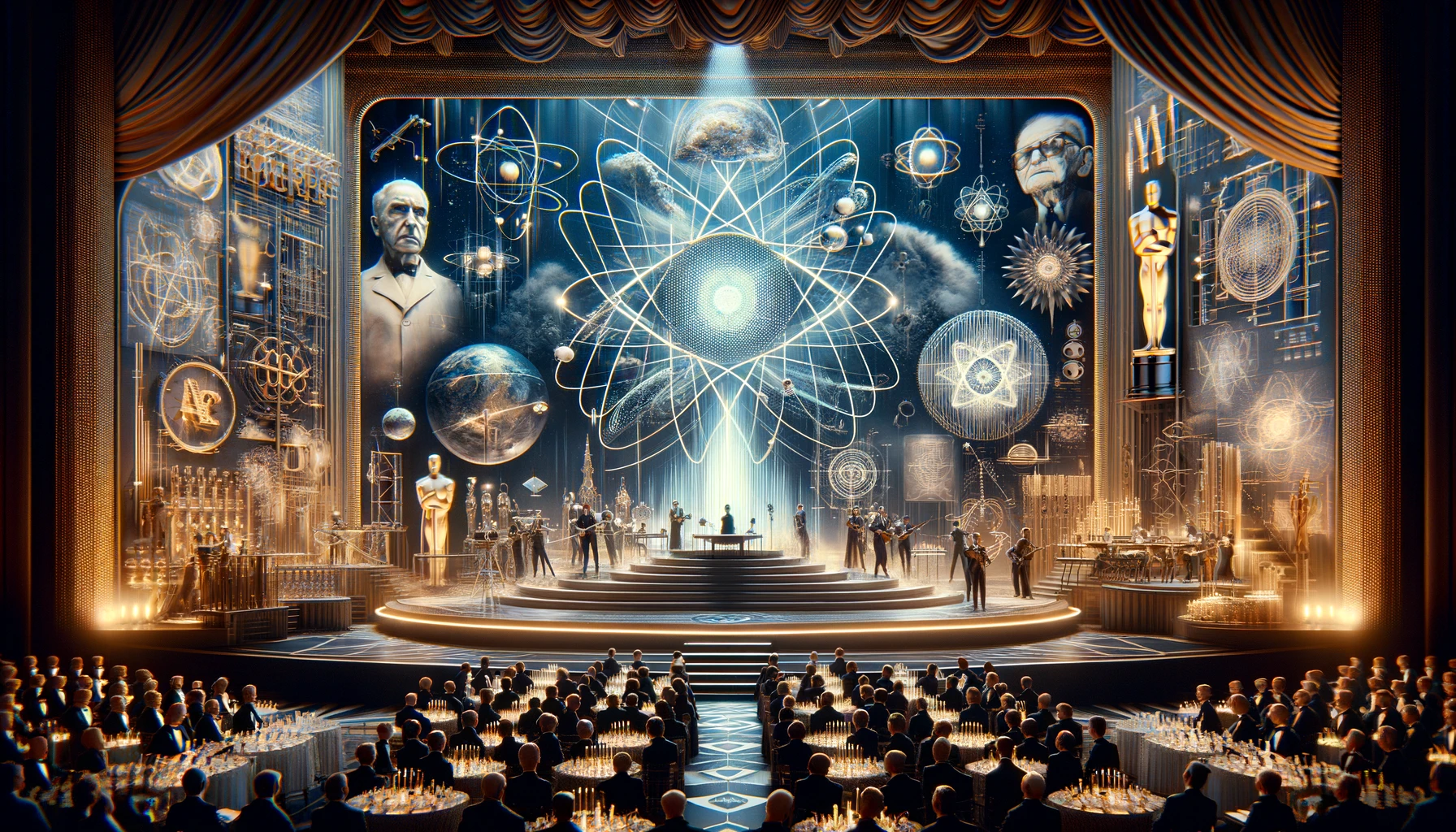
Oppenheimer not only dominated the nominations but also exploded onto the scene with a significant haul of awards, including Best Picture, Best Director for Christopher Nolan, and Best Actor for Cillian Murphy. This triumphant sweep ignites a discussion on the theoretical implications of such a dominant win, both for the film itself and the broader cinematic landscape.
The Gravity of the Win
“Oppenheimer’s” success at the Oscars is not merely a testament to its cinematic excellence but also marks a pivotal moment in the narrative of historical and scientific storytelling in film. By securing top honors in categories across the board, the film underscores the Academy’s recognition of technically sophisticated and intellectually rich narratives. Christopher Nolan’s win for Best Director, in particular, highlights a shift towards celebrating filmmakers who embark on ambitious, thought-provoking projects.
Cillian Murphy’s Performance: A Study in Complexity
Cillian Murphy’s win for Best Actor for his portrayal of J. Robert Oppenheimer is a focal point for discussion. His performance, lauded for its depth and complexity, offers a lens through which to examine the challenges of portraying historical figures. Murphy’s achievement emphasizes the importance of nuanced character study in biographical films and sets a high bar for future portrayals of similar complexity.
The Impact on Historical Narratives
The success of “Oppenheimer” signals a potent interest in films that delve into historical and scientific themes, providing a blend of educational content and entertainment. This win could theoretically lead to an increase in the production of films that explore significant historical figures and events, with a particular emphasis on the intricacies of their contributions and the moral quandaries they faced. The film’s accolades could inspire filmmakers to pursue stories that challenge audiences to engage with complex subjects.
Setting New Standards in Filmmaking
“Oppenheimer’s” achievements at the Oscars may also set new technical and narrative standards for future productions. With awards spanning categories like Best Original Score and Best Cinematography, the film exemplifies the pinnacle of cinematic craftsmanship. Its success might encourage filmmakers to push the boundaries of what is possible in terms of visual storytelling and sound design, aiming for a level of excellence that matches or exceeds that of “Oppenheimer.”
Conclusion: A Catalyst for Future Explorations
In the wake of “Oppenheimer’s” explosive performance at the Oscars, the film industry stands at the precipice of a new era in filmmaking, where the blending of historical accuracy, scientific exploration, and cinematic artistry is not just celebrated but expected. The film’s success is a harbinger of the potential for cinema to educate, engage, and inspire, paving the way for future projects that dare to explore the complexities of the human condition against the backdrop of significant historical narratives. As “Oppenheimer” basks in the glow of its Oscar wins, it leaves behind a legacy that will undoubtedly influence the direction of cinematic storytelling for years to come.

